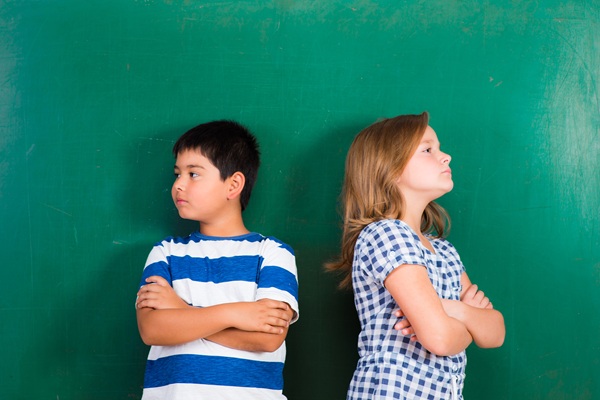Conflict resolution programmes as a path to positive school culture

Different studies have shown a link between behaviour management challenges, low academic performance, truancy and dropout rates, which highlight an urgent need for change.
In today’s schools, pupils often come from diverse backgrounds, face unique challenges and may be exposed to a range of stressors outside of school. These realities can lead to conflicts in classrooms and bullying. As a result, conflict resolution, preventing and addressing bullying in schools, has become a priority across EU countries, with an emphasis on tolerance, inclusivity and respect for diversity as core values.
Conflict resolution programmes can help schools address these issues by creating a space where pupils and teachers can focus on learning, build problem-solving skills and develop positive relationships. These prevent minor disagreements from escalating and equip pupils with key skills for emotional regulation, empathy and collaboration. These programmes aim to build the social and emotional competencies of both children and young people, along with the professionals who support them. By emphasising open communication, positive relationships, violence prevention, respect for diversity and healthy decision-making, such programmes can be transformative.
A variety of programmes and curricula have been developed in recent years that focus on positive discipline and classroom management based on relationship building rather than punishment. These include mediation and peer mediation techniques, restorative practices, social-emotional learning (SEL), and programmes aimed at enhancing the mental health and wellbeing of both pupils and teachers. The objective is to foster better communication and conflict resolution skills to create safer, more inclusive school communities and enhance overall learning outcomes.
Several resources offer schools accessible tools and programmes to reduce violence and foster empathy among pupils. Some key resources are included below.
- Psycho-Educational Materials for War and Stressful Situations provides essential tools for educators working with pupils affected by trauma or stress, including those impacted by war.
- Safe Healing and Learning Space Toolkit (SHLS) is a toolkit designed to create secure environments that foster both emotional healing and academic growth. This toolkit provides guidelines for creating safe physical and emotional spaces where pupils feel protected and encouraged to express themselves.
- Anti-Bullying Ambassador Programme empowers pupils to become ambassadors against bullying, and to foster a peer-driven culture of support.
- Creating Peace is a project whose goal is to encourage and coach pupils with special educational needs to develop their transversal skills, especially interpersonal and intrapersonal skills together with critical thinking, to help them to integrate more easily into local society.
- Action Against Bullying (AAB) is a programme that focuses on empowering educators and pupils to collaboratively address bullying.
- European Network Against Bullying in Learning and Leisure Environments (ENABLE) offers a range of resources and guidance for preventing bullying in schools and recreational environments, and supports a cross-country approach to creating safe learning spaces.
Conflict resolution tools and anti-bullying programmes, such as those supported by various EU initiatives, play a vital role in fostering peaceful and productive learning environments. Some of the resources and strategies that teachers can use to address conflicts and build safer, more supportive classroom environments that discourage conflict and promote positive relationships are listed below.
- Peer mediation programmes such as Brave Club: Zero Violence from Age Zero provide training and resources for peer-led mediation initiatives. Pupils learn problem-solving and accountability, which makes peer mediation a powerful tool in conflict management.
- Social and emotional learning (SEL) programmes like J’ai Ma Place au Collège help pupils develop self-awareness, empathy and emotional regulation skills.
- Using technology for prevention – e-Tool for Preventing Bullying is an interactive resource that educates pupils on the impact of bullying and provides strategies to handle and prevent conflicts. By integrating technology, schools can make conflict resolution education more accessible and engaging for pupils.
Further reading
Additional information
-
Education type:School Education
-
Target audience:TeacherStudent TeacherHead Teacher / PrincipalSchool PsychologistTeacher EducatorResearcher
-
Target audience ISCED:Primary education (ISCED 1)Lower secondary education (ISCED 2)

